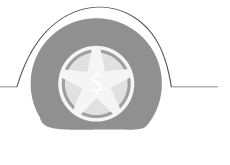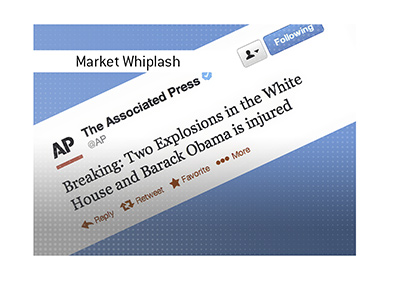Prices Drop During Deflation - What's Wrong With That?
 A few months back, the "boogeyman" hiding under the bed of the US economy was inflation.
A few months back, the "boogeyman" hiding under the bed of the US economy was inflation. Many smart people felt as though hyperinflation would be coming to the United States, due to the fact that the government's printing presses were running at such an alarming rate. Some people even felt as though things could get as bad as they are in Zimbabwe, where prices double on an almost daily basis.
A few months have passed, and now the big worry seems to be deflation.
First off - what exactly is deflation?
Deflation is the opposite of inflation. Inflation takes place when the general price level of goods and services increases - deflation is the exact opposite.
With deflation, the buying power of a dollar increases. As the price levels of goods and services decreases, buying power increases.
So what's wrong with deflation? Isn't it a good thing if prices drop?
Well, here's the first problem with deflation. With prices dropping, many consumers will delay purchases. It makes sense - if you are certain that the price of an item will drop over the next few months due to deflation, then there is a good chance that you will hold off on making the purchase.
In an effort to attract consumers, companies will likely offer steeper and steeper price cuts in order to lure people to their stores. The problem? This comes at the expense of their revenues and profits. Declining revenues and profits means that expenses will need to be reduced, which results in employees being let go.
Companies are letting people go in order to lower their expenses, which results in increased unemployment numbers. This leads to falling wages as unemployed workers are forced to accept pay cuts in order to find new work.
Suddenly deflation is not looking so good. Sure, goods and services are dropping in price, but wages are falling at the same time. The buying power of a dollar has increased, but people are making less money.
So, people are suddenly making less money. In addition, those with savings are delaying major purchases, based on the belief that prices will continue to drop. Why buy something for $150,000 when you can buy it for $130,000 next year? This leads to falling asset values, as people who are desperate to sell something will likely need to substantially cut their prices in order to find a buyer.
Real estate values will drop as prospective buyers wait out the market and sellers cut their asking price in order to find a buyer. Rents will also drop.
In addition, many people are suddenly afraid to accumulate debt in a deflationary environment, which will also serve to slow economic growth. If the buying power of a dollar is increasing, then the real cost of servicing debt is also increasing. If wages are falling with each passing month, then the cost of servicing debt becomes more expensive with each passing month.
--
The United States desperately wants to avoid both deflation and hyperinflation - both have the capacity to completely ruin the economy.
According to the Federal Reserve, the "sweet spot" is moderate inflation.
Of course, hitting that "sweet spot" is the tough part.
Filed under: General Knowledge



